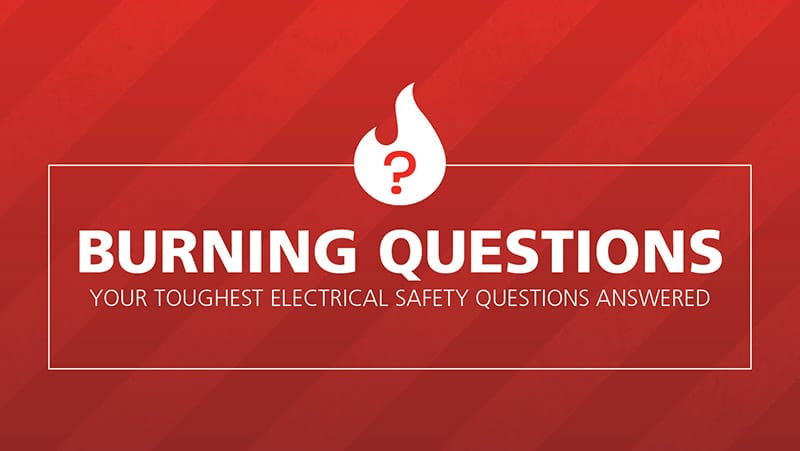Q: Do we have to follow NFPA 70E, or is it voluntary?
A: We always suggest that users follow NFPA 70E as they would follow an OSHA instruction.
We are often asked whether the NFPA 70E is required or enforced by OSHA. This article, Voluntary Standards: Treat as “Voluntary” at Your Own Risk, discusses the role of consensus standards.
Consensus standards have and will continue to hold up in legal cases. It comes back to what is “customary” in our industry.
One point not mentioned in this article relates to OSHA inspections and citations. OSHA 1910 Subpart S is based on the National Electric Code (NEC) and the Standard for Electrical Safety in the Workplace (NFPA 70E), albeit rather outdated versions of those standards.
OSHA still uses NFPA 70E under the general duty clause. This comes back to what is “customary” to issue citations.
Use the e-Hazard Safety Cycle™ to help with your ESP.
The e-Hazard Safety Cycle™ is a tool that can help you implement a sustainable Electrical Safety Program (ESP) that meets both OSHA and NFPA 70E requirements. It builds on common safety improvement models to help companies understand how to grow their electrical safety program or improve their existing one.
Follow the link to read about improving not only your ESP but also electrical maintenance, training, auditing, risk assessment, and investigation methods.
Have a question about electrical safety and standards?


Excellent points to consider for any employer to consider when deciding to implement or not implement NFPA 70E. And this would also apply to electric utilities, especially electric generation stations, who’s electrical distribution systems and equipment are nearly identical to large industrial plants.
Deciding on which safety regulation or standard to follow should be based on their ability to abate or eliminate the hazards employees are exposed to rather than “Am I technically covered or not covered”.